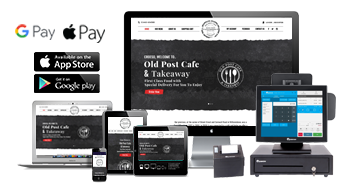
Introduction
In today’s fast-paced world of dining, where convenience and efficiency are the keys to success, a centralized reservation system can work wonders for your restaurant. As the digital landscape continues to evolve, the way customers book reservations have changed too.
This article explores the advantages of adopting a centralized reservation system, highlighting how it can revolutionize the way you manage reservations, enhance guest experiences, and ultimately boost your restaurant’s profitability.
The Changing Landscape of Restaurant Reservations systems
Gone are the days of scribbling down reservations in a physical ledger. With the advent of technology, diners now expect seamless online booking systems. As restaurant owners, embracing this change is crucial to staying relevant and competitive in the hospitality industry.
The Role of Technology in Modern Dining
Technology has become an indispensable part of our lives, and the restaurant industry is no exception. A centralized reservation system leverages the power of technology to streamline the booking process, allowing diners to reserve tables from the comfort of their smartphones or computers.
Streamlining the Reservation Process
Eliminating Manual Booking Hassles
Say goodbye to the days of missed calls and miscommunication. A centralized system automates the online restaurant reservation process, eliminating manual errors and the need for constant phone monitoring.
Minimizing Errors and Double Bookings
In the world of restaurant reservations, accuracy is paramount. A centralized system ensures that double bookings and scheduling conflicts become a thing of the past, leading to smoother operations and happier customers.
Enhancing Customer Convenience
24/7 Access to Reservations
Imagine a diner craving your delicious cuisine at midnight and being able to make a hotel reservation instantly. A centralized system provides 24/7 access, allowing customers to book whenever it suits them.
Instant Confirmation and Updates
Customers appreciate certainty. With instant confirmation and real-time updates on their reservations, they can plan their dining experiences with confidence, knowing their spot is secured.
Optimizing Table Turnover
Efficiently Managing Peak Hours
Peak dining hours can be a double-edged sword—while they bring in more customers, they can also lead to longer waiting times. A centralized online reservation system helps save time, reducing customer frustration.
Reducing Waiting Times
Time is precious, and no one likes to wait for a table. A centralized system allows you to save time and manage guest experience, ensuring a smoother dining expectation.
Personalized Dining Experiences
Capturing Customer Preferences
A memorable dining experience is one that caters to individual preferences. A centralized system stores customer preferences, from seating arrangements to dietary restrictions, allowing you to provide a tailored service.
Customizable Special Requests
Whether it’s a birthday surprise or a specific seating preference, a centralized system makes it easy to accommodate special requests, creating a lasting impression on your patrons.
Managing Special Occasions
Handling Large Group Reservations
From corporate events to family gatherings, handling large group reservations can be daunting. A centralized system simplifies the process, ensuring that all logistics are in place to cater to these special occasions.
Facilitating Event Planning
Planning events goes beyond just restaurant reservation systems. A centralized system helps manage event details, ensuring that every aspect, from seating arrangements to menu selections, is taken care of.
Data-Driven Decision Making
Access to Reservation Analytics
Data holds the key to strategic decisions. A centralized system provides valuable insights into reservation systems, enabling you to make informed choices about staffing, menu offerings, and more.
Identifying Peak Demand Periods
Understanding when your restaurant experiences peak demand allows you to optimize staffing levels, manage inventory, and enhance overall operational efficiency.
Boosting Staff Efficiency
Organized Seating Assignments
Assigning seats can be a juggling act, especially during busy times. A centralized system streamlines the process, ensuring that every table is efficiently assigned without causing chaos.
Reducing Front-Desk Workload
Front-desk staff have a multitude of responsibilities. By automating reservation management systems, you free up their time to focus on providing exceptional customer service.
Maximizing Revenue Opportunities
Upselling and Cross-Selling
A centralized system isn’t just about online reservations—it’s a tool for boosting revenue too. By integrating upselling and cross-selling opportunities into the booking process, you can increase the average check value.
Implementing Dynamic Pricing
Dynamic pricing can be a game-changer during off-peak hours. A centralized system allows you to implement flexible pricing strategies to attract more customers during quieter times.
Building Customer Loyalty
Implementing Loyalty Programs
Rewarding returning customers fosters loyalty. A centralized system enables you to implement loyalty programs that incentivize diners to choose your restaurant over others.
Recognizing Returning Diners
Personalization goes a long way in customer retention. A centralized system lets you recognize and appreciate returning diners, creating a sense of belonging.
Integration with Other Systems
Syncing with POS and CRM
A truly efficient operation requires seamless integration between systems. A centralized reservation system that syncs with your POS and CRM ensures that all customer data is connected.
Seamless Integration with Third-Party Apps
From email marketing campaigns to social media promotions, a centralized system can integrate with various apps to ensure a cohesive and effective marketing strategy.
Adapting to Changing Situations
Handling Cancellations and Modifications
Plans change, and so do reservations. A centralized system allows customers to modify or cancel their bookings, ensuring flexibility while minimizing disruptions.
Adapting to COVID-19 Regulations
The pandemic reshaped the dining landscape. A centralized system can adapt to changing regulations, ensuring compliance and providing a safe dining environment.
Reduce No-Shows
Sending Reminders and Confirmations
No-shows can be detrimental to your business. A centralized system sends automated reminders and confirmations, significantly reducing the likelihood of last-minute cancellations.
Implementing Cancellation Policies
Clear cancellation policies discourage no-shows. A centralized system ensures that customers are aware of these policies, minimizing the impact of sudden cancellations.
Data Security and Privacy
Safeguarding Customer Information
Customer data protection is paramount. A centralized system ensures that customer information is securely stored, building trust and loyalty.
Complying with Data Protection Regulations
Data protection regulations are becoming more stringent. A centralized system helps you stay compliant, avoiding legal complications and potential fines.
Competitive Edge
Differentiating Your Restaurant
In a crowded market, standing out is essential. A centralized reservation system not only improves operations but also showcases your commitment to offering the best possible dining experience.
Attracting Tech-Savvy Customers
Modern customers appreciate technology-driven convenience. By offering an advanced reservation system, you attract tech-savvy diners who value seamless experiences.
Implementation and Training
Selecting the Right System
Choosing the perfect centralized system requires careful consideration. It’s essential to pick a solution that aligns with your restaurant’s specific needs and goals.
Training Staff for Smooth Adoption
Technology adoption requires training. A centralized system’s success depends on your staff’s ability to use it effectively, so invest time in proper training.
Benefits of Reservation System in Restaurants
Efficient Table Management: Restaurants can optimize table turnover and ensure that there’s always a table ready for customers who’ve made a reservation.
Predictable Customer Flow: By knowing how many reservations are booked, restaurants can predict busy times and staff accordingly.
Enhanced Customer Experience: Customers can book a table at their convenience, ensuring they don’t have to wait in line.
Increased Revenue: By efficiently managing tables and reducing wait times, restaurants can serve more customers and increase their revenue.
Builds Customer Database: Restaurants can gather data on their customers, helping them with marketing efforts and personalized service.
Special Requests Handling: Customers can make special requests while booking, ensuring a personalized dining experience.
Advantages of Computer Reservation System
Real-Time Updates: Any changes or new reservations are updated in real-time, preventing overbookings or errors.
Integration with Other Systems: Computer reservation systems can integrate with point-of-sale systems, customer relationship management software, and more.
Remote Access: Management can access the reservation system from anywhere, allowing for flexibility.
Data Analysis: The system can provide insights into customer preferences, busy times, and other valuable data.
Automated Communications: Automated reminders, confirmations, and promotional messages can be sent to customers.
User-Friendly Interface: Modern systems are intuitive and easy to use, reducing training time for staff.
Cost-Effective: Over time, the efficiency provided by a computer reservation system can lead to cost savings.
Disadvantages of Computer Reservation System
Dependency on Technology: Any technical glitches or downtime can disrupt the reservation process.
Initial Setup Costs: There might be significant costs involved in purchasing and setting up the system.
Training Required: Staff needs to be trained to use the system, which can take time and resources.
Security Concerns: Like all digital systems, there’s a risk of data breaches or cyberattacks.
Regular Updates Needed: The software needs regular updates, which might come with additional costs.
Less Personal Touch: While automated systems are efficient, they might lack the personal touch that some customers appreciate.
Integration Issues: If not compatible, the system might have issues integrating with other software the restaurant uses.
Conclusion
As the restaurant industry continues to evolve, embracing technology becomes paramount to success. A centralized reservation system offers benefits that extend beyond managing reservations—it enhances customer experiences, boosts operational efficiency, and positions your restaurant as a leader in the digital age.
By embracing the future of reservation management, you’re not just streamlining processes; you’re shaping the dining experiences of tomorrow.
References









